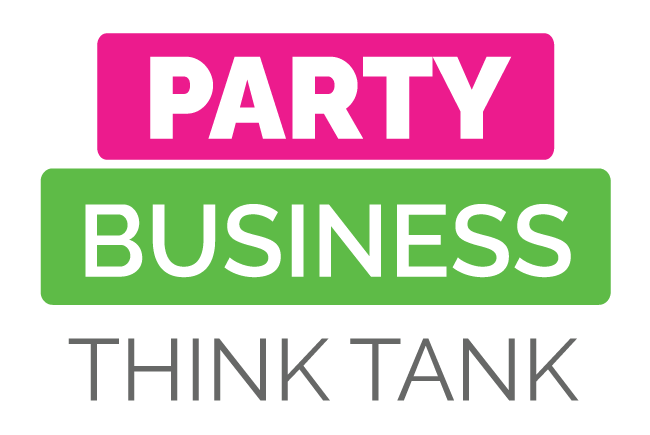How to Vet a Booking Software Provider (Before You Waste Hours on Demos)
Because no one has time to fall in love with a platform that ghosts you later
So, you’re thinking of switching booking systems. You’ve outgrown your current setup, or maybe you’re just sick of spreadsheets and reminders living in 14 different places.
Great!
We’ve already talked about how to choose a booking system that won’t drive you crazy… But before you start signing up for 10 free trials or sitting through slick demos, there’s one step you should take first:
Vet the provider.
(Not just the software. The people behind it.)
Why Vetting the Provider Matters
Features are great. Demos are shiny. But if the people behind the platform don’t understand your business, don’t support it properly, or aren’t truly committed… you’re going to feel it. Fast.
Choosing software without vetting the provider is like hiring someone off Fiverr to run your whole admin department because they had a nice logo. Very risky stuff!

❌ Red Flags to Watch Out For
1. Looks Custom, But Isn’t: The Problem with Resellers (aka White-Label Software)
You may have seen booking platforms pop up lately that look like they were made just for party businesses. The branding feels spot on, the promises sound convincing, and the pricing might even be tempting.
But here’s the truth behind many of these tools:
They’re actually generic software platforms that have been rebranded and resold under a new name. This is called “white-labelling.”
It’s like taking a pre-built system, slapping a fresh logo on it, and marketing it to a niche audience… without changing anything under the hood.
What’s the risk?
- The platform wasn’t built for your industry, it’s just been marketed that way
- Support is often outsourced or limited to what the generic base software allows
- If the reseller stops offering it, pivots industries, or gets bored… you’re on your own!
We’ve seen this happen more than a few times in our community, and it leaves party business owners stuck with clunky tools that don’t really fit… or worse, scrambling to migrate again when the reseller disappears.
2. General-Purpose Tools That Aren’t Built for Our World
Some platforms don’t pretend to be niche. Tools like Calendly, Acuity, HoneyBook, and 17hats are designed for broad markets – think coaches, consultants, salons, photographers.
And while they’re polished and popular, their one-size-fits-all approach doesn’t always play nice with party business needs.
The result?
You end up duct-taping together a bunch of disconnected features, adding workarounds, or paying for functions you’ll never use.
Generic tools can be great for simple needs. But when you’re managing staff/subcontractors, reschedules, client details, and weekend chaos? That’s when “simple” becomes limiting real quick.
These platforms don’t try to speak your language. So don’t expect them to understand what you need.
3. No Community or Visible Presence
If you can’t find them in Facebook groups, industry chats, or anywhere beyond their website, be wary.
Real providers who care about your industry:
- Show up in conversations
- Engage with users
- Offer education or support that goes beyond software
Bottom line… Silence = Risk.
4. “Too Good to Be True” Pricing
If it’s free or suspiciously cheap, ask yourself: how is this being sustained?
Because quality development, support, and ongoing updates cost money. If the price seems magical, something else is probably being cut.
5. No Track Record
New startups aren’t bad – but be cautious if:
- They’ve only just launched
- Their site is all sizzle and no substance
- There’s no visible user base
✅ Green Flags to Look For
1. Deep Industry Understanding
You want a provider who gets entertainers, subcontractors, complex scheduling, staff availability, gig rescheduling, and chaotic weekends. Not just someone who thinks a party business is like a hair salon with balloons.
Look for signs they’ve lived it or are deeply connected to those who have.
2. Transparent, Ongoing Development
- Are they regularly improving the platform?
- Do they share what’s coming next?
- Do user suggestions actually shape the product?
Purpose-built tools evolve with their community.
3. Real Community & Peer Proof
If other party pros are using it – and gladly recommending it to their peers – that’s a very good sign.
Bonus points if there’s a community around it where you can learn, get help, or connect with others using the system.
At Party Pro Manager, our roadmap is shaped directly from feedback in groups we manage like the Party Business Think Tank, or even our PPM specific Facebook community. And, we’ve made dozens of improvements in the past year alone based on real user input.

The Bottom Line
Before you dive into comparing features or sitting through demos, pause and ask:
- Who actually owns this software?
- How invested are they in our industry?
- What happens if something breaks, or I need help fast?
- Are they building something long-term – or reselling a quick fix?
Because your booking system isn’t just another tool. It’s infrastructure. And infrastructure built on shaky ground? Never ends well.
👀 Next Up:
In the next article, we’ll walk you through how to assess the functionality of booking systems – not just by what’s on the feature list, but by how well it actually works in the real world.
Because ticking boxes is one thing… making your life easier is another.
Essential Guides for Choosing Your Party Booking System
- How to Choose a Booking System That Won’t Drive You Crazy
- How to Vet a Booking Software Provider (Before You Waste Hours on Demos)
(👆 you are here ) - What Features Actually Matter in a Booking System for Party Businesses
- 7 Mistakes Party Businesses Make When Choosing Booking Software
Ready to get organized and stress-free?
Start your free trial.
And, get ready for life-changing results… guaranteed!






